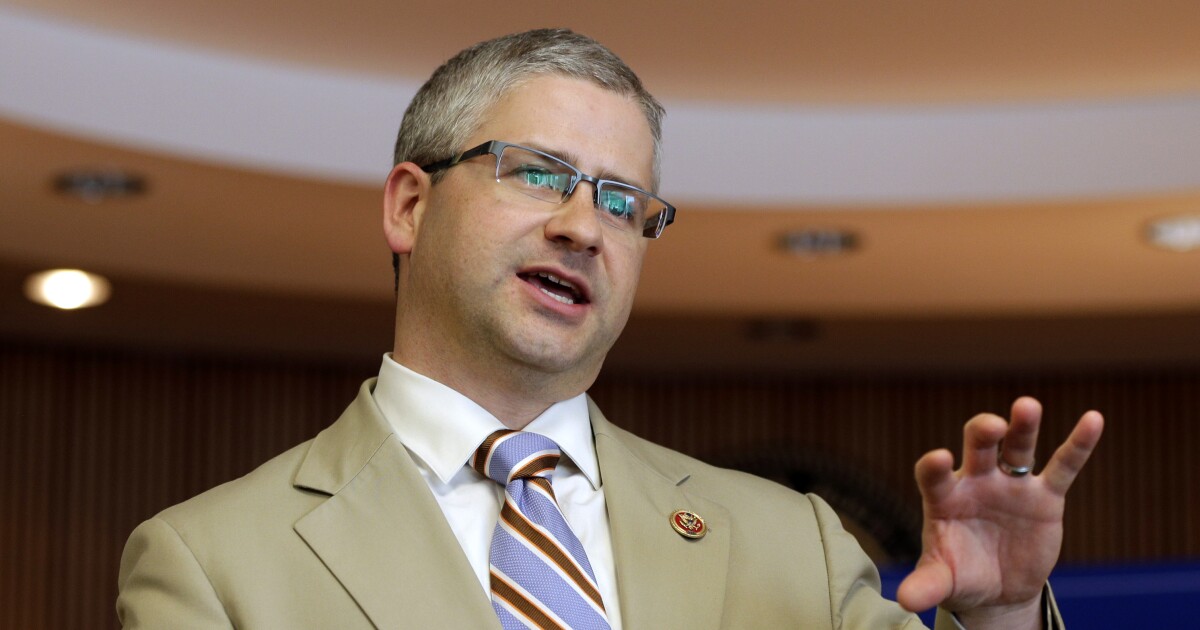

Lawmakers on Wednesday heard testimony from experts about draft legislation designed to provide a framework for stablecoins, which Congress hopes to more closely regulate.
The discussion draft bill, which was crafted with input from House Financial Services Committee Chairman Patrick McHenry (R-NC) and ranking member Maxine Waters (D-CA), was released this week. The draft, which McHenry has dubbed an “ugly baby,” received some praise from Republicans and some disdain from Democrats during the hearing.
SEC CHAIRMAN GARY GENSLER DODGES ON WHETHER ETHEREUM IS A SECURITY OR COMMODITY
A stablecoin is a form of cryptocurrency that ties its value to an underlying asset, such as gold or fiat currency. Stablecoins typically don’t fluctuate in value wildly, as some cryptocurrencies such as bitcoin have, because they are asset-backed.
The draft legislation, which is still evolving, would put oversight of stablecoins issued by non-bank institutions under the purview of the Federal Reserve, while insured depository institutions that want to issue stablecoins would be handled by the relevant federal banking agency. If non-bank institutions don’t register stablecoins, under the legislation they could be slapped with a $1 million fine and five years in prison.
The proposal is an offshoot from congressional efforts to craft stablecoin legislation last session. Rep. French Hill (R-AR), who leads the subcommittee on digital assets, acknowledged that last year’s draft represented an “imperfect compromise” that “nobody really liked.”
“The Financial Stability Oversight Council recommended that Congress pass a legal framework, and Chairman McHenry and I are committed to working across the aisle to pass payment stablecoin legislation, and we are hopeful that the members in this room will build the foundation of that work,” Hill said Wednesday.
“By requiring payment stablecoins to be backed one-for-one by high-quality liquid assets held in reserve, the proposal mitigates run risk,” he added. “The legislation also requires stablecoin issuers to comply with redemption requirements, monthly attestation and disclosures, and risk management standards.”
Hill praised the draft legislation being discussed and gave it a nod to bipartisan negotiations, although he acknowledged that the planning was still in its infancy.
“That bill is an infant. It’s a baby. It’s not necessarily a beautiful baby, but it’s our baby and it’s named Maxine-McHenry,” he said in a portmanteau of the committee’s top Republican and Democrat.
Waters, though, pushed back a bit and noted the gap that needs to be bridged. She said that Congress needed to move quickly on passing effective stablecoin legislation.
“Mr. McHenry alarmed me somewhat when he said that the members on his side of the aisle had come up with a whole new bill,” Waters said. “The posted bill in no way represents … negotiations between the two of us … I think we’re starting from scratch.”
The draft legislation also institutes a two-year ban on creating or issuing new stablecoins that aren’t backed by tangible underlying assets like gold.
Stablecoins have caught the eye of U.S. regulators. Treasury Secretary Janet Yellen has convened meetings with federal regulators to discuss the need to come up with plans to regulate the unique cryptocurrencies.
Additionally, the committee is considering a bill that calls for a study into the effects and implications of the Federal Reserve issuing a central bank digital currency, known as a CBDC. This has recently garnered outsize attention among some prominent political figures.
Gov. Ron DeSantis (R-FL) released a legislative proposal last month that would prohibit the use of a federal CBDC as currency within Florida’s Uniform Commercial Code. It also works to prevent a form of “global” centralized currency by banning any CBDC issued by a foreign nation or foreign-sanctioned central bank. DeSantis has called upon other states to follow his lead and introduce similar legislation.
“The Biden administration’s efforts to inject a Centralized Bank Digital Currency is about surveillance and control,” said DeSantis in announcing the proposal. “Today’s announcement will protect Florida consumers and businesses from the reckless adoption of a ‘centralized digital dollar’ which will stifle innovation and promote government-sanctioned surveillance.”
CLICK HERE TO READ MORE FROM THE WASHINGTON EXAMINER
Wednesday’s hearing comes a day after Securities and Exchange Commissioner Gary Gensler appeared before the same panel. During the hearing, Gensler struggled in congressional testimony on Tuesday to say whether the second-largest cryptocurrency, ethereum, is a security or a commodity.
Bitcoin, the largest cryptocurrency, is widely viewed as a commodity, but questions about ethereum have arisen after ethereum last year switched to a proof-of-stake blockchain network, in which coins can be staked in exchange for rewards in a manner somewhat similar to interest paid on bonds.




